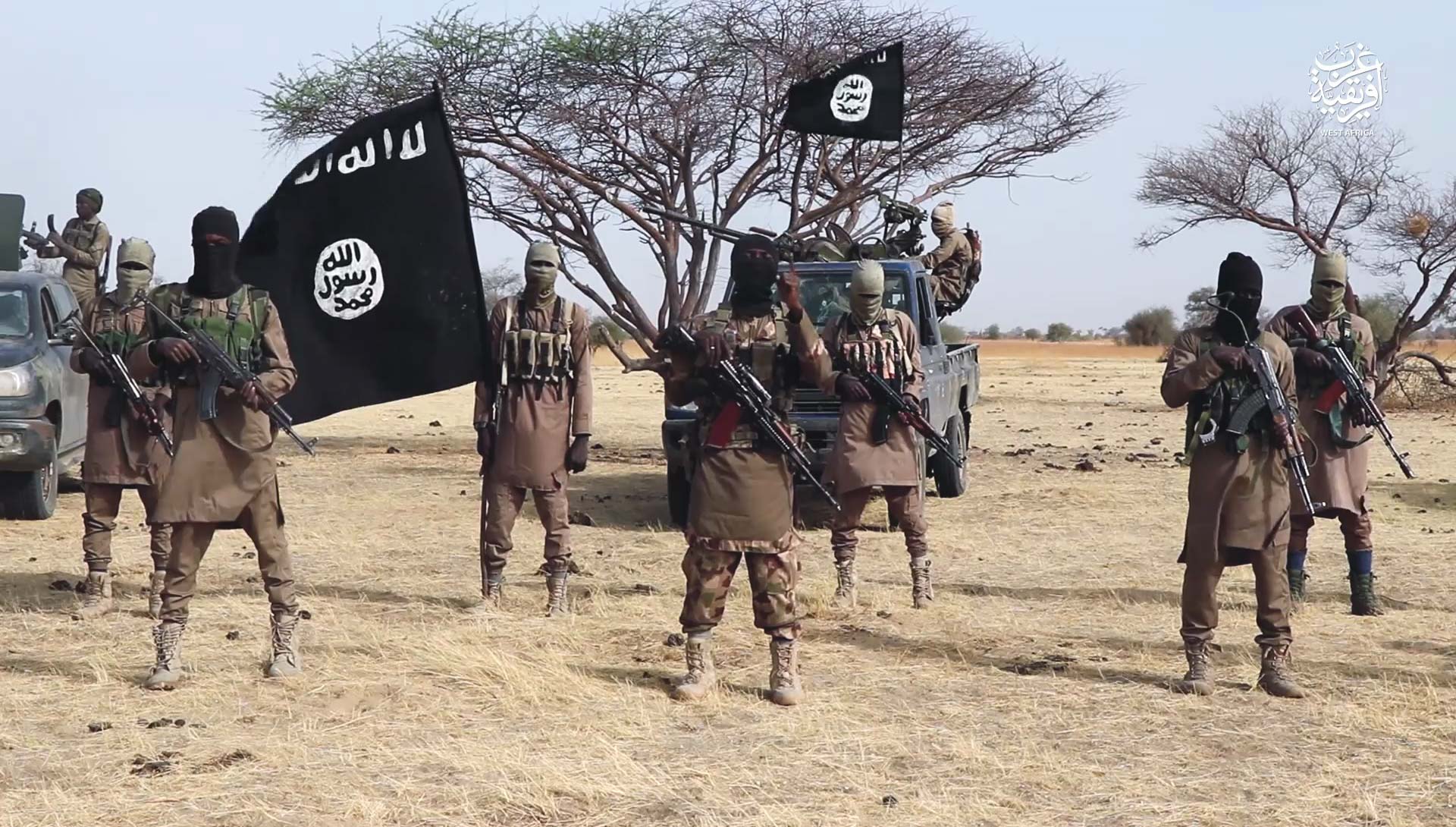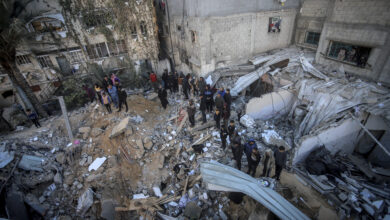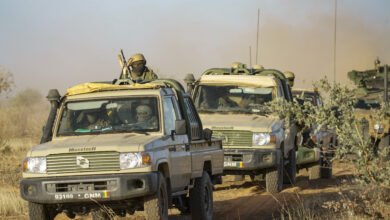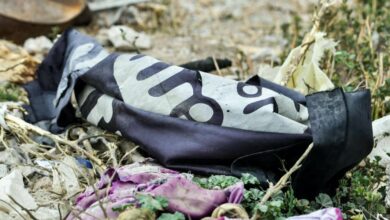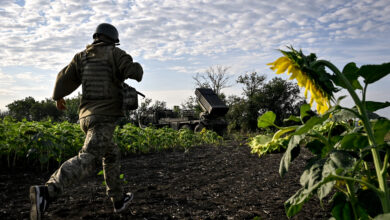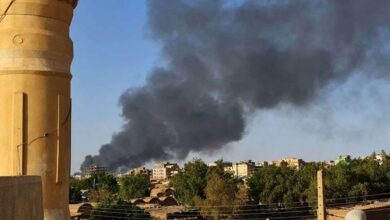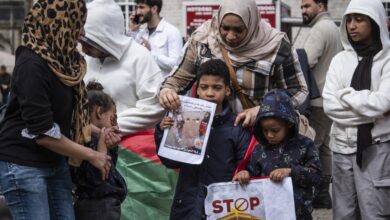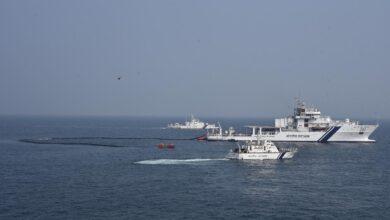Six people were killed on Thursday when their car hit a land mine in northeast Nigeria’s conflict-torn Borno state, civilian militia sources told AFP.
The commercial vehicle struck the explosive outside Kamuya village, which is around 145 km
Militia sources told AFP they believed the the roadside bomb was planted by Islamic State West Africa Province militants who were targeting military patrols.
“The car was heading to the state capital Maiduguri when it hit the landmine around 9 a.m. (0800 GMT) and killed all six people on board,” civilian militia leader Mustapha Karimbe told AFP. Karimbe is based in Biu, around 47 km .
“The mine was no doubt planted by ISWAP which was from all indication targeted at soldiers but civilians ended up being the victims,” said another civilian militia member, Musa Ari.
Shortly afterwards on Thursday afternoon, suspected ISWAP fighters ambushed a commuter bus in the nearby Maza village, abducting 10 passengers, the militia said.
“Ten passengers in the bus were taken into the bush by the insurgents,” Karimbe said.
The Nigerian military has not yet commented on the incidents, and ISIS has not yet claimed that ISWAP fighters were responsible.
ISWAP attacks in the Maiduguri-Biu-Damuturu triangle
The home village of Chief of Army Staff Lieutenant General Tukur Yusuf Buratai’s mother according to AFP, Kamuya has seen a number of violent events this year.
On September 6, at least one soldier was killed and three others injured in an ambush on a military convoy near Kamuya. The following day, ISIS claimed ISWAP fighters had killed two soldiers in an attack near Buratai. Kamuya is in the Buratai area.
In January, six soldiers were killed and 14 were injured when ISWAP fighters attacked a base in Kamuya, and in March, militants killed a police officer and a local resident at military base outside Miringa, around 20 km to the south towards Biu.
Although ISWAP’s main area of operations is further east in the Lake Chad area, the group has attacked a number of military locations in the Maiduguri-Biu-Damuturu triangle in recent months. In late July, ISIS claimed ISWAP fighters killed 25 Nigerian troops in Benisheikh, northeast of Kamuya and earlier that month claimed ISWAP fighters fought off a Nigerian military assault in the Damboa area.
The Nigerian military seldom comments on the ongoing counter-insurgency operations, and has downplayed the insurgents’ effectiveness in the area. In one case, after ISWAP fighters in April attacked a military base in Sabon Gari, between Damboa and Biu, the Nigerian Army described reporting on the incident as “unsubstantiated” and “fake,” saying it was the work of “Boko Haram sympathizers.”
ISWAP fighters ambushed a convoy that was transporting civilians from Sabon Gari to Damboa a month later. Media reported that between five and 25 Nigerian soldiers died in that attack, but again the Nigerian Army described those reports as “fake news” and denied there had been any attacks on military personnel in Borno state.
A decade of Islamist insurgency
The jihadist group known as Boko Haram began its bloody insurgency in northeastern Nigeria in 2009, but it has since spread into neighboring Niger, Chad and Cameroon, prompting a regional military response.
Boko Haram split into two factions in mid-2016. One, led by long-time leader Abubakar Shekau, is notorious for suicide bombings and indiscriminate killings of civilians. Shekau pledged allegiance to ISIS leader Abu Bakr Al-Baghdadi in March 2015, but ISIS central only gives formal backing to the other faction, which it calls Islamic State West Africa Province.
The ISWAP faction, which largely focuses on attacking military and government targets, was led by Abu Mus’ab Al-Barnawi, but in March, audio recordings revealed that ISIS appointed Abu Abdullah Idris bin Umar, also known as Ibn Umar al-Barnawi and Ba Idrisa, as ISWAP leader. ISIS has not yet made a public statement confirming the change. On September 10, the United States added Ba Idrisa to its Specially Designated Global Terrorist list, but did not specify which faction he belongs to.
The U.S. assesses that Boko Haram and ISWAP are responsible for more than 35,000 deaths since 2011. More than two million people have been displaced by the conflict, sparking a dire humanitarian crisis in the region. Earlier this month, the International Committee of the Red Cross said that nearly 22,000 people, mostly children, are missing as a result of the northeast Nigeria insurgency.
Buratai in May said Boko Haram was defeated and the Nigerian military is now fighting what he reportedly described as an international criminal gang known as Islamic State West Africa Province. In July, a spokesperson for President Muhammadu Buhari again insisted that Boko Haram was defeated, blaming ongoing violence in the northeast on international jihadists that were exploiting porous borders with Sahel countries.
On September 13, the army said Buratai had warned that referring to Boko Haram, JAS or ISWAP by name “could amount to supporting or encouraging terrorism,” and that “giving prominence to the criminal activities of the terrorists group through sensational headlines and fake news in both electronic and print media could also amount to tacit support to terrorism which violates the Terrorism Prevention Act 2011.”
With reporting from AFP

